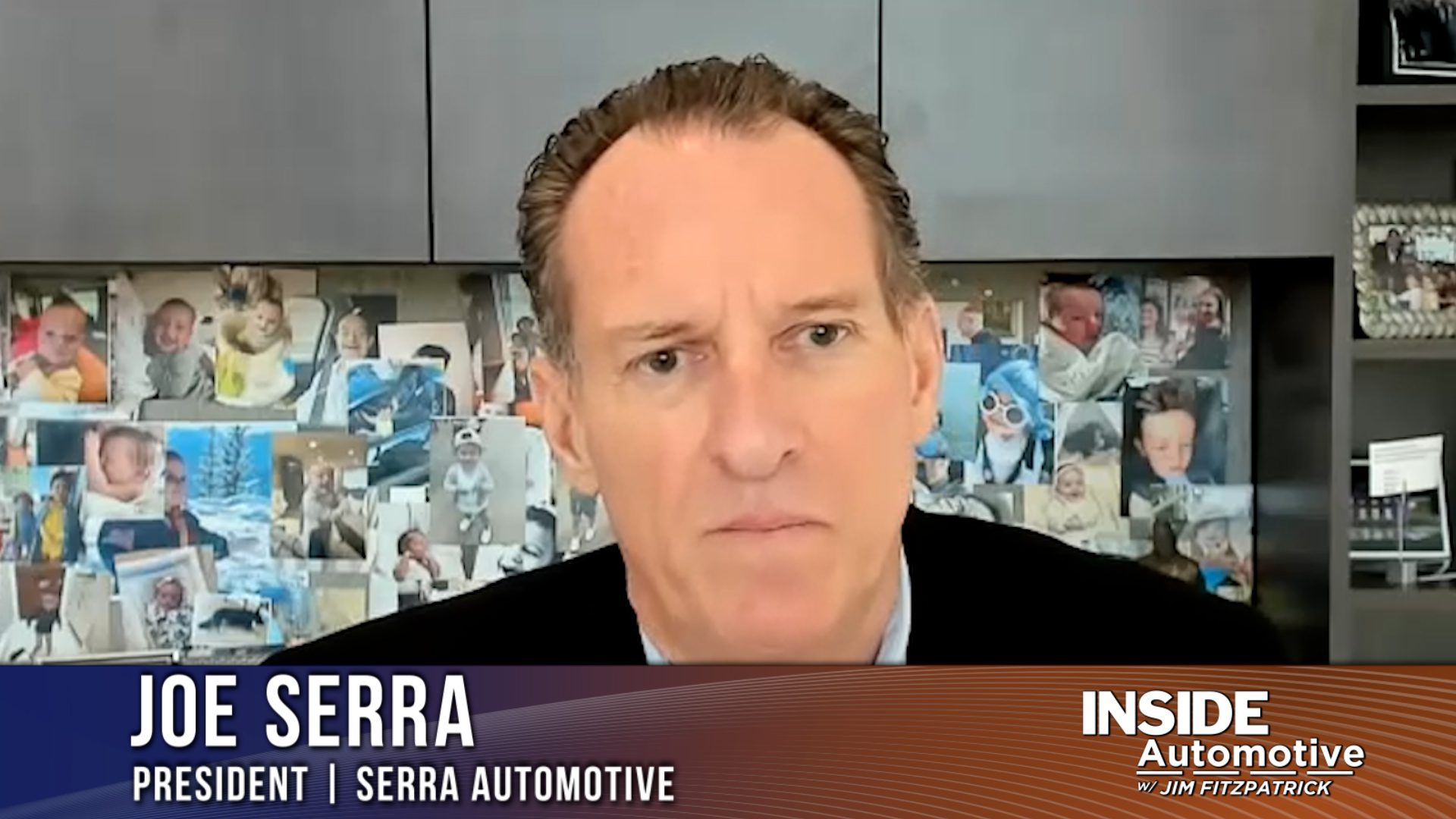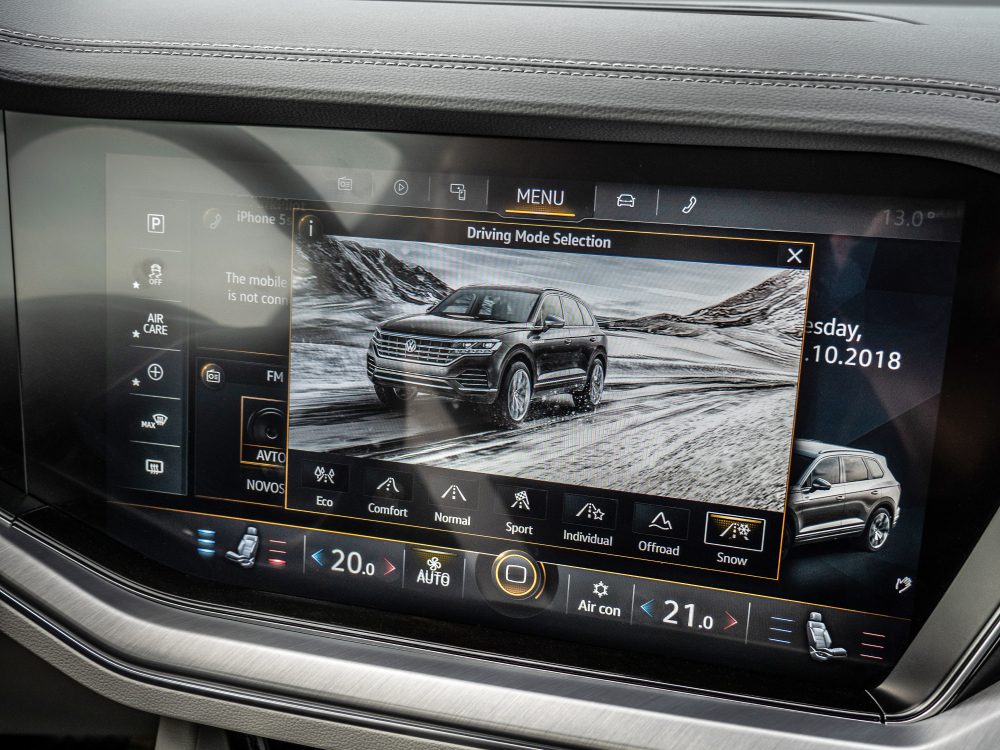Inside Automotive:


Serra Automotive ranks among the top 10 privately-held retail automotive groups in the nation; with 51 dealerships and representing 63 franchises. On today’s show, we’re pleased to welcome the President of Serra Automotive, Joe Serra, to walk us through what business looks like for his group, and what his perspective is on the current state of automotive retail. Watch the complete segment here.
Headlines:
In an interview with Reuters, a Mercedes-Benz executive said the luxury automaker will not immediately be making a switch to all-electric facilities. Chief Production Officer Joerg Burzer said Mercedes-Benz will instead continue using its production lines for both EVs and internal combustion vehicles for the near future. He added that the transition to fully-electric manufacturing plants will be slower and is planned for later in the decade. Meanwhile, Mercedes-Benz is hoping that the release of its EQE model will increase its EV sales, as they only accounted for slightly over 2% of all sales last year.
General Motors and its subsidiary Cruise are asking regulators to approve their request that would allow them to place their “Cruise Origin” vehicles on U.S. roads. Production of the vehicles is slated to begin later this year at a GM factory in Detroit, and the self-driving cars will be free of traditional vehicle features that require human interaction such as steering wheels and brakes. Cruise and GM are hoping the vehicles will help people who lack a reliable means of transportation, and the “origin” model would be able to seat four people. Analysts say GM and Cruise may not receive approval in the near future, as the National Highway Traffic and Safety Administration has historically been slow in reviewing similar requests.
A dissatisfied Carvana customer in Colorado is speaking out against the retailer, saying he was sold a stolen car that had extensive damage. Denver resident Dennis Atencio told reporters the vehicle he bought from Carvana turned out to be stolen and that despite Carvana promising a 150-point inspection, his vehicle also had mechanical issues that ultimately led to it being deemed a total loss. Atencio said Carvana’s contract agreements do not allow customers to sue the retailer and added he will be going through an arbitration procedure next month to try to get his money back. Carvana has continuously faced scrutiny from customers, including numerous complaints with the Better Business Bureau.
The Lion Electric Company has announced it will be partnering with Cox Automotive Mobility to provide its customers access to 25 maintenance facilities. The EV manufacturer said the agreement will also give Cox Automotive Mobility access to its “experience centers,” which provide education, maintenance, and training regarding electric fleets. The announcement said the partnership will improve customer service for medium- and heavy-duty fleet owners as the auto industry advances its electrification strategies. The two companies successfully piloted a collaboration last year.
Celebrating Black History Month:


Miller was also part of Vanguard Racing and became the first black owner to enter a car in the Indianapolis 500. Miller later founded Miller Racing Group with his son Leonard T. Miller and together, they became the first African-American team owners to win a track championship in NASCAR history. You can read more about Miller’s incredible life in his 2004 autobiography, “Silent Thunder: Breaking Through Cultural, Racial, and Class Barriers in Motorsports.”
News & Opinion:


This month, the NHTSA approved adaptive headlamps, and many consumers will have the choice of paying a monthly subscription to add them, thanks to OTA updates. And a JD Power survey published in January found that 58% of people who use an automaker’s smartphone app wouldn’t be willing to pay for it. So, we may be about to ride a wave of subscription-based ways to add significant upgrades to a vehicle after purchase. But who’ll get the money? OEMs or dealers? Read More


For most dealerships, the aim for 100% service absorption is a lofty goal. Achieved, it pays the overhead expenses completely for the month, alleviating pressure on the rest of the departments for profitability. That’s especially important when the sales department isn’t able to hold gross in every deal, like the industry say pre-COVID. While the sales department is more than capable of holding their own at the moment, it’s no reason for the service department to let up. There will likely come a time not too far down the road when sales profitability is a challenge, and that could still be due at times to supply chain issues. Read more
Did you enjoy today’s automotive newscast? Please share your thoughts, comments, or questions regarding this topic by submitting a letter to the editor here, or connect with us at newsroom@cbtnews.com.
Be sure to follow us on Facebook and Twitter to stay up to date or catch up on all of our podcasts on demand.
While you’re here, don’t forget to subscribe to our email newsletter for all the latest auto industry news from CBT News.




